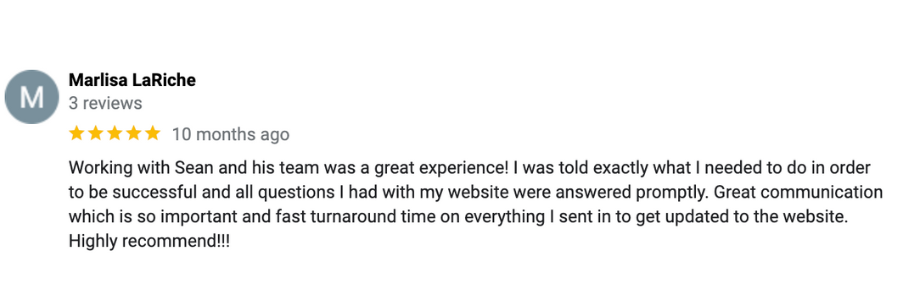222 Capitol Street, Suite 522
Charleston, WV 25301

Ideation Digital specializes in strategic marketing services that drive results for your business or organization, let us show you how our SEO Services can help grow your business on auto-pilot.
Is your online presence strong but your sales numbers remain disappointingly low?
Do you feel invisible online and know it’s affecting your sales growth?
Wondering if your business website actually brings in any customers?
Invested in online marketing but not seeing any increase in sales or customer inquiries?
The problem is there is more competition than ever for attention online and having a "good enough" online presence isn't good enough to get you customers anymore.
At Ideation Digital marketing we focus on building websites and SEO marketing programs that get you customers and leads, because why else would you invest in your small business marketing?
We understand the business saving impact of knowing you are getting consistent online leads from your website and online marketing. We are small business owners too.
That's why we only create online marketing that is optimized to produce sales and results. A.I. powered organic and comprehensive marketing systems that leverage the power of A.I. to create an online presence that actually makes the phone ring.

Want to discover how much not having an A.I. powered organic marketing system is costing your business already?
Get our digital marketing cheat sheet, made from a decade of experience in the industry, and customized for your business with exact steps to get consistent leads from your online marketing and finally feel like your online marketing investment is worth it!
How It Works
Here's what you get working with us:
Trust
We only recommend products and services that align opportunities with your goals. We focus on results for your business first.
Freedom
We manage all campaigns and assets for you. Need an update? No problem, send us an email, a text, or we will even create you a slack channel.
Growth
We don't just build websites, create SEO plans, and run ads for online marketing campaigns, we create comprehensive a.i. powered organic and paid marketing programs that bring you leads and customers.
See What Small Business Owners are Saying About Working with Ideation Digital








Paid Advertising: PPC Management Explained
Are you ready to take your business to a new level of profitability with a digital strategy that has been proven time and again? It's time to explore the power-packed world of Pay-Per-Click (PPC) advertising. Deemed as one of the most influential digital marketing techniques, PPC can drive targeted traffic to your website, increase sales, and boost brand visibility. However, successful PPC campaigns require strategic planning, continuous optimization, and professional management. In this post, we'll demystify PPC management—discussing its intricate aspects, its unparalleled benefits and how making it part of your business strategy could write your success story in the vast digital arena. So buckle up for a comprehensive guide that will turn you from a novice into a savvy advertiser.

PPC management refers to the process of overseeing and optimizing a company's PPC ad campaigns, including strategies and ad buys, to minimize expenditure and maximize return on investment (ROI). It involves tasks such as keyword analysis, channel strategy, monitoring performance, competitive analysis, A/B testing, and more. Effective PPC management is crucial in ensuring that your paid advertising efforts reach the right audience, generate quality leads, and drive conversions while minimizing wasteful spending.
Advantages of PPC Management
PPC management is an essential process of overseeing and optimizing pay-per-click campaigns across various platforms such as Google Ads, Bing Ads, and social media channels. Some advantages of utilizing PPC management services include:
Consider your online advertising campaigns like an engine – without proper maintenance and care by an expert, it won't run efficiently.
Expertise
Qualified PPC managers possess the expertise to maximize ad spend, optimize conversions, and conduct extensive keyword research. This ensures that your campaigns yield maximum returns on investment.
Saving Time
Hiring a professional to handle your campaigns means they handle every aspect of optimization for each channel, which lets you focus on other aspects of growing your business.
Better Targeting
Professional PPC management includes demographics targeting through geolocation accuracy analysis, audience behavior tracking, device segmentation among others to deliver highly targeted ads with precision.
A skilled PPC manager can reduce your ad spend while still maintaining acceptable click-through rates (CTR). For instance, by creating better-targeted ads or reducing costs per click through effective bidding strategies, a more efficient use of ad spend can be achieved.
While there are many reasons to consider hiring professional help when it comes to managing pay-per-click campaigns let's now discuss the role of a dedicated paid search specialist in a little more detail.
- The role of PPC management is crucial in optimizing and overseeing pay-per-click campaigns across different platforms. Hiring a professional PPC manager offers several advantages, including expertise in maximizing ad spend, optimizing conversions, and conducting thorough keyword research. This leads to better returns on investment. Additionally, outsourcing PPC management saves time and allows business owners to focus on other aspects of their business growth. Professional PPC managers also excel at better targeting by utilizing demographic analysis, audience behavior tracking, and device segmentation to deliver highly targeted ads with precision. Ultimately, hiring skilled PPC managers can reduce ad spend while maintaining acceptable click-through rates through strategies such as creating better-targeted ads or implementing effective bidding strategies.
The Role of a PPC Manager
When it comes to maximizing the potential of Pay Per Click (PPC) advertising, there are many variables that need to be taken into account. That's where the role of a PPC Manager comes into play. Simply put, their primary responsibility is to ensure that all aspects of a client's PPC campaign are performing at an optimal level. This includes the management and optimization of keywords, ad creatives, landing pages, bidding strategies and budget allocation.
A skilled PPC manager must have an in-depth knowledge of various platforms like Google Ads, Bing Ads and social media platforms like Facebook and LinkedIn. They must also have experience with analytics tools like Google Analytics, which enables them to track and analyze essential metrics such as click-through-rates (CTR), cost per click (CPC), conversion rates and return on ad spend (ROAS). Ultimately, their goal is not just to generate clicks but drive conversions while maintaining profitability.
With the importance of a PPC Manager established, let's dive into the fundamentals of a PPC campaign.
Fundamentals of a PPC Campaign
Creating a successful PPC campaign requires attention to detail at every stage and involves several key elements. First and foremost, it's essential to identify your target audience and tailor your messaging accordingly. This can range from selecting suitable keywords that match user intent to crafting compelling ad copy and landing pages that appeal to your target demographic.
For instance, if you're selling premium running shoes for women aged 25-35 who want high-performance products but don't compromise on style, ensure your keyword selection reflects this intent.
Budgeting is another crucial aspect of running a successful campaign. Defining your budget from the onset helps you stay focused on achieving specific goals without overspending. Setting daily or monthly expenditure limits for campaigns gives you more control over targeting options, bid prices and ad placements.
Once you've established a budget, conducting thorough keyword research and analysis is necessary to identify the best keywords that will deliver results. This involves assessing competition levels and making sure your chosen keywords both reflect your offering and are likely to be used by your target audience.
To put this into perspective, think of creating a successful PPC campaign as baking a cake. Just as baking requires specific measurements and ingredients to ensure a tasty result, so does creating an efficient PPC campaign demand attention to detail in targeting the right audience with optimal messaging and budgets.
Additionally, effective tracking through analytics tools enables you to monitor performance continuously and adjust bids or pause campaigns based on real-time data. It's beneficial to define success metrics before launching your PPC campaign, whether sales conversions, form fills or any other desired outcome. This helps align team members working on the campaign towards specific goals and facilitates accurate reporting on ROI.
Before embarking on any PPC campaign, it is crucial to set clear objectives. Are you looking for increased website traffic, more leads, or better conversion rates? Your objectives will determine how much you spend on your campaign, where you allocate your budget and what metrics you use to determine success. Having unambiguous objectives helps to keep the campaign focused and provides a yardstick to measure performance.
Next, establish a realistic budget that factors in all costs associated with your campaign. Factors such as ad spend, marketing agency fees, PPC management software costs, among others. Your budget should be based on previous expenditures (if any), industry benchmarks and audience demographics. A properly allocated budget ensures that you have enough capital to achieve your objectives while preventing overspending.
Setting Objectives and Budgets
Developing a Strategic PPC Campaign
With your objectives set and a budget determined, it's time to create a strategic PPC campaign that aligns with both areas. To do this effectively, consider these important factors:
01
Keyword Analysis: Discovering specific keywords used by potential customers and focusing ad targeting around them.
02
Channel Strategy: Determining which channels are best suited for the campaign such as Google AdWords, Bing Ads or affiliate networks depending on where your target audience is most active.
03
Landing Page Optimization: Optimizing landing pages for high conversion rates by setting up A/B tests on copy or other elements of the page.
04
Ad Copy: Creating attention-grabbing headlines and compelling descriptions within ads themselves.
05
Competitive Analysis: Monitoring competitor tactics and strategies to gain an edge.
06
Negative Match: Optimizing ad spending by filtering out users unlikely to convert based on certain criteria like income level or geographic proximity.
It's important also to look beyond these areas alone determining additional KPIs such as conversions per month or target spend per week. With a clear understanding of these areas focus stays consistent and continuous successes build on themselves over time.
For example, If your business goal is to increase brand awareness while decreasing cost-per-click (CPC) rates, you could develop ads targeted towards local markets. Once that campaign gains traction and conversions begin to comes in, future campaigns can build off those early successes and the data gathered therein.
While creating a strategic PPC campaign may seem easy enough it can be challenging to follow through with such a plan. Some businesses might find it difficult to even get started, while others might find optimization a huge challenge.
Since PPC management is an ongoing task, regular monitoring and tweaking of your performance metrics is essential. Monitoring will allow you to identify new opportunities, optimize ad spend, and keep up with changes within your industry or PPC platform features.
- What is PPC Management in Paid Advertising?
- Write 3 scientific statistics about "PPC Management in Paid Advertising":
- In 2020, approximately 45% of small businesses were investing in PPC advertising, demonstrating its importance as part of a robust marketing strategy.
- According to data from SEMRush, the average cost per click (CPC) across all industries is $1.33 on the search network and $0.63 on the display network.
- A study by Forrester Research, published in 2023, suggests that businesses who use effective PPC management can see ROI growth rates of up to 30%.
Monitoring and Tweaking Your PPC Strategy
Monitoring and tweaking your pay-per-click (PPC) strategy is crucial for succeeding in the world of paid advertising. As a marketer, you need to consistently monitor the performance of your ad campaigns and make adjustments accordingly. This involves tracking metrics such as click-through rates (CTRs), cost per click (CPC), and conversion rates. By keeping an eye on these metrics, you can identify which ads are performing well and optimize poorly performing campaigns.
For instance, if you notice that an ad has a low CTR, it's an indication that something's not resonating with your target audience. You might want to revise the ad copy or change the keyword targeting to make it more relevant to your target market. Similarly, if you discover that certain keywords have high CPCs, you may consider tweaking your bidding strategy.
But creating a winning PPC campaign doesn't stop at monitoring and tweaking; optimizing your campaign is just as vital.
Tips for PPC Campaign Optimization
Optimizing your PPC campaign depends on several factors, from user intent to ROI targets. However, some fundamental best practices apply across all channels. Here are some tips to consider:
Think of optimizing a PPC campaign like baking a cake – It requires specific ingredients in precise measurements, careful timing, quality skills, and patience.
Keyword Research: Every successful PPC campaign begins with meticulous research into keywords specific to your target audience. Conducting keyword research involves identifying the language used by searchers when looking for your products/services.
Ad Copy: Your ad headlines and descriptions have a significant influence over whether users decide whether to click on them or not. To create effective ad copy that resonates with readers, you should align it with the searcher’s needs while fulfilling their desired outcome.
Targeted Landing Pages: Landing pages should reflect the message relayed in your ads and provide insights into your products or services. Having landing pages that don't deliver on their promises results in low-quality leads and high bounce rates.
Performance Optimization: Your PPC campaign performance involves fine-tuning ad copy, bidding strategies, keyword targeting, and ad placement to drive favorable outcomes.
Monitoring Competitors: Being informed of competitor campaigns can help you optimize your overall strategy while retaining your market’s targeted audience. Keeping track of their messaging efforts can give you insight into new split testing opportunities that could yield favorable results.
Is the customer always right? The answer is yes! Understanding their needs through feedback allows you to tailor-make ads with messaging that speaks directly to them while relaying tangible value benefits they will reap by purchasing your product/service.
By following these tips, you'll be able to create personalized marketing campaigns that resonate with users' search intent, leading to significant conversion rates and overall brand growth.

Main Office
222 Capitol Street, Suite 522
Charleston, WV 25301
other offices
48 1/2 Second Ave, Williamson, WV 25661
20 Clinch Mountain Ave, Lebanon, VA 24266,
Contact
DIGITAL MARKETING SERVICES
All Rights Reserved | Ideation Digital
Private Policy
All Rights Reserved | Ideation Digital




